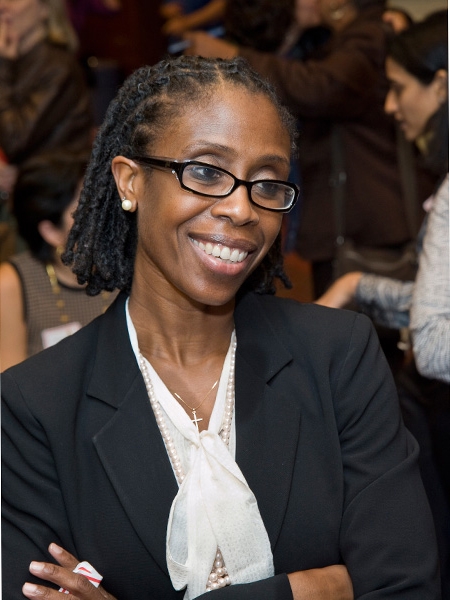
Dr. Carla Boutin-Foster
In lieu of a formal course of study, student-run free clinics that adopt new healthcare delivery models can provide medical students with a hands-on setting to learn about them — all while benefitting patients, according to recent research by Weill Cornell Medical College researchers. The investigators based their analysis on their experiences at Weill Cornell's student-run clinic, which employs a healthcare delivery model called a patient-centered medical home that emphasizes comprehensive primary care provided by a team of medical professionals.
The findings, published in September in Advances in Medical Education and Practice, are significant because few medical schools have integrated formal education on these models into their curricula, despite their being a cornerstone of federal healthcare reform.
"There are logistical issues that make it difficult for medical schools to implement new models, since many schools are absorbed into or work with hospitals that have their own preexisting models," said lead author Dr. Megan Riddle '14, a psychiatry resident at the University of Washington and a former co-executive director of the Weill Cornell Community Clinic. "Our idea is that modeling student-run free clinics after the patient-centered medical home model is mutually beneficial for patients and students alike."
In the traditional delivery model, the burden is on patients to find specialists who participate in their insurance plans, and then schedule follow-up care with their primary physicians. But in a patient-centered medical home, a team of physicians and allied medical professionals provide patients with coordinated, continuous and comprehensive care, including primary and acute care and mental health services. These practices, which often include a strong quality-assurance component to ensure patients receive the best possible care, typically partner with community agencies to address social determinants of health. As a result, this model is particularly applicable to the care of underserved and uninsured patients, who are typically less likely than insured patients to seek medical care until an emergency occurs.
The Weill Cornell Community Clinic, which provides free primary care, women's health and mental health services, adopted the patient-centered medical home model in 2011. In the year that followed, more than 100 medical students — 70 percent of whom were first-years — volunteered at the clinic and worked as a team to treat patients for conditions including high blood pressure and cholesterol, diabetes, gastrointestinal conditions, arthritis, anxiety and depression. They also collaborated with students at the Silberman School of Social Work at Hunter College to provide patients with resources about housing, insurance, affordable prescription medication and nutritional services.
In surveys, 95 percent of participating students reported that they were overall satisfied with their experiences at the community clinic, that it improved their ability to care for and manage medical conditions and that it enhanced their medical educations.
Patients similarly had positive feedback. Surveys found that 87 percent were very or extremely satisfied with the care they received at the community clinic, and 96 percent would recommend it to others. Eighty percent of patients rated the helpfulness, courtesy and effective communication of the student doctors as excellent or good. The length of time spent at the clinic was rated as excellent or good by 70 percent of the patients.
"Patients benefit from the wrap-around, team-based approach," Dr. Riddle said. "Students have the opportunity to establish long-term relationships with patients, learn to work in inter-professional teams, and learn methods of quality assurance and patient safety skills they don't necessarily get much exposure to in the first two years of medical school."
Given these experiences, the Weill Cornell investigators posit that student-run free clinics are prime practices to adopt the patient-centered medical home model. Those that do so place students on the front lines of problem solving, care coordination and delivery that enhance their medical school education.
"Through collaboration, the Weill Cornell Community Clinic program provides students with an intense and unique experience in interdisciplinary care, that once they are in a busy practice they may have less time to experience," said senior author Dr. Carla Boutin-Foster, an associate professor of medicine and of healthcare policy and research. "Integrating PCMH in student-run free clinics is a great way for students to become part of an interdisciplinary team and primary provider of care from day one."
